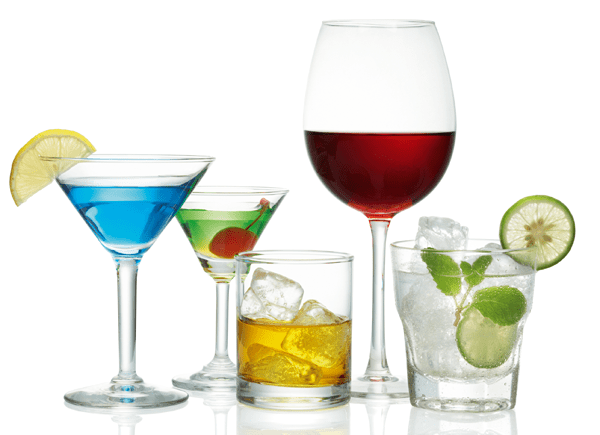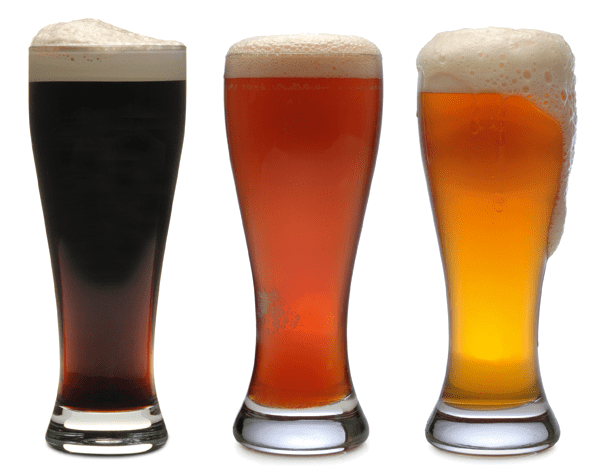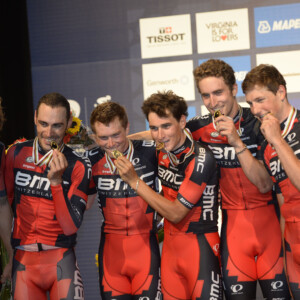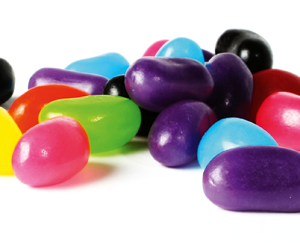Arriving home after a long day and heading straight to the fridge to pour a glass of wine or grab a beer is daily habit of many and while there is nothing wrong with enjoying alcohol in moderation, there may be some side effects of excessive alcohol consumption that you may not be aware of and that may not be benefiting your cycling performance in training or during competition.
What is Alcohol?
Alcohol, the fourth energy containing nutrient after carbohydrate, protein and fat, contains 27kJ per gram, only slightly less than fat which contains 37kJ per gram. Not only is alcohol relatively high in energy, it is also recognised as a toxin by the body and as a result digested before the other three nutrients. What this means is that if you eat when you drink, the body will be so busy burning up the alcohol that it is far less likely to get to the food, which is why alcohol and weight gain often go hand in hand.
How Much Should I be Drinking?
It is recommended that adults aim for no more than two standard drinks each day with at least two alcohol free days each week for health and disease prevention. One of the most pertinent issues when it comes to considering the role of alcohol in one’s life is the fact that our ‘standard drinks’ have very rapidly become jumbo sized. A traditional 120ml glass of wine is now more commonly enjoyed as a 250ml goblet, while it is not uncommon for a couple to polish off a bottle of their favourite red with dinner each night. Not only does this become a difficult habit to break, it also tends to mean a number of kilos will accumulate over time. Not only is extra weight not ideal for our health long-term, extra fat mass is also ‘dead weight’ for any athlete carrying their body weight in competition.
Alcohol and Cycling Performance
Specifically when it comes to cycling, regular alcohol consumption is associated with three key issues. Firstly and perhaps most importantly, alcohol causes dehydration, although this does depend on the volume of alcohol being consumed and the concentration of the alcoholic drinks you are choosing. Concentrated spirits, wine and full strength beer will result in a net fluid loss when consumed in large volume (>2-3 standard drinks). If you do enjoy a few drinks after training, the good news is that low alcohol or ‘light’ beers or even spirits mixed in large glasses with low calorie mixers such as soda water will not have this effect. For this reason, if you do enjoy a few drinks during an evening or after training or competition, choose large glasses and reduced alcohol varieties of beer and wine where possible.

The next thing to be aware of when it comes to drinking alcohol and cycling training and competition is that if you have an injury that is swelling or chronically inflamed, instead of reducing blood flow to support rapid recovery, the consumption of alcohol will increase blood flow to the area and extend recovery time. For this reason, if you are injured or have a chronic injury that inflames easily, you are best to lay off the booze, especially if you are competing again in the near future.
Perhaps the most relevant issue associated with alcohol and riding is that consumption of more than a couple of drinks results in slower decision making and reaction times. For this reason, competing under the influence of alcohol is never advised, nor even training and especially riding on the road, in the same way drink driving is never encouraged.
Is Alcohol a Bad Habit in Your Life?
A lesser talked about issue with alcohol in Australia is that in more and more cases, regular drinking and binge drinking is common and even encouraged. It is often considered normal to ‘write yourself off’ on weekends or work through a sixpack or whole bottle of wine throughout an evening without any consideration for the health and social consequences of these bad habits. So, if you are one of many Australians who arrive home from work or training and find yourself pouring a drink as soon as you walk in the door, it may be worth taking some time to consider the real reason why you are drinking. Do you actually enjoy it, or is it more of a mindless habit that you have developed over time – a crutch to help you make it through the day?
Once drinking becomes a habit, it becomes so entrenched in your lifestyle that it is a very difficult habit to break and what was once a single glass of wine is more likely to be half a bottle every single day. Evenings are also unproductive and you sleep badly and awake feeling fatigued and slightly hung-over, not to mention the follow-on effects for your riding and weight. So, if you are a nightly drinker and finding that it is starting to negatively impact on your life in numerous ways, it may really be time to Performance Susie Burrell is one of Australia’s leading dietitians with degrees in both nutrition and psychology. Susie regularly appears on Channel 7’s Today Tonight and Sunrise and has recently published her second book ‘Lose weight fast’. She has a nutrition practice in Sydney. www.susieburrell.com.au. For a free iphone app go to itunes and search Susie Burrell How to Lose Weight Fast. Susie Burrell take a break from drinking altogether. It is only once you have completely removed yourself from something that you have the mental clarity to realise the effect it is really having on your life. Only then can you make an informed decision over what role alcohol should play in your week.

Which Type of Alcohol?
When it comes to making the best choice of alcoholic drinks there is no clear winner. Beer contains a high number of calories for the amount of alcohol you consume, and wine can be sweet so it is easier to drink lots of it. Spirits are more concentrated and you can add lower calorie mixers to reduce the calorie content but they can also be more difficult to get, especially when out at work functions. Overall, if you drink only occasionally you do not need to be overly fussy about what you are drinking. On the other hand, if you drink more than once or twice each week, in much larger quantities than one or two standard drinks, a plain spirit with a low calorie mixer is going to be one of the best choices or a low alcohol beer or wine.
How to Drink in Moderation
The good news is that as is the case with all areas of nutrition, it is possible to strike a balance between enjoyment, health, weight control and sports performance when it comes to alcohol consumption. One of the simple things you can do in an attempt to control your intake is invest in some smaller glasses. Research has shown that we tend to drink significantly less if we drink out of a tall, slim glass than if we drink out of a short, wider one. Next, always try and finish one glass of alcohol before you start another – don’t top up; it’s easier to keep track of exactly how much you are drinking. If you prefer spirits, always look for low kilojoule mixers such as lime, soda water and diet soft drinks, or try the low carbohydrate and low alcohol beers and wines to cut out a few extra kilojoules. Finally but most importantly, if you train and compete regularly, keep mindful about the impact that alcohol can have on your performance and recovery and choose the right drink, at the right time, in the right amounts. Then you can enjoy a couple of drinks but also your cycling.

